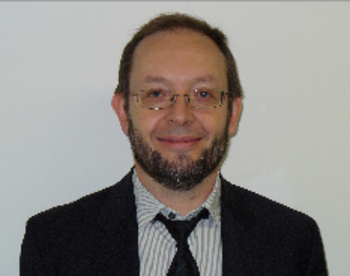We are pleased to announce that Prof. Mikhael (Misha) Yu. Ivanov joined the Max-Born-Institute (MBI) as head of department A1 and as a W3-S professor of theoretical optics at the Humboldt University's Institute of Physics at the beginning of this year. He succeeds Prof. Martin Weinelt at the MBI, who was appointed to the Free University Berlin last year.
Misha Ivanov (1964) is considered one of the world's leading theorists in the emerging field of ultra-short-time physics at high laser intensities, developing new methods for studying the light-matter interaction up to the extremely short attosecond timescale. He has made significant contributions to the development of attosecond physics and, among other activities, co-author of key work on the generation of attosecond impulses, the control of attosecond electron dynamics in ionization in strong fields, and the observation of electron dynamics in molecules on the attosecond time scale.
